Premium Only Content
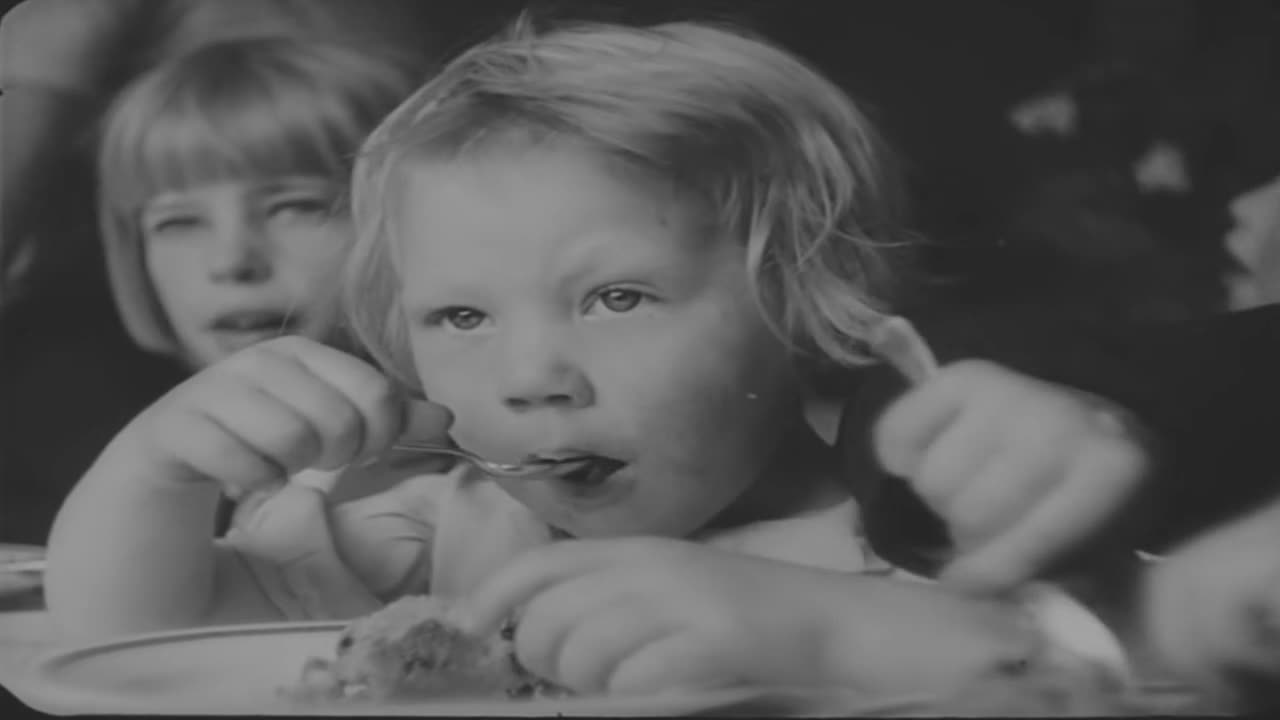
Join Together Baba O'Reily Who Are You The Who
Join Together Album: Who's Better, Who's Best (1972)
Baba O'Reilly Album: Who's Next (1971)
Who Are You Album: Who Are You? (1978)
by The Who
As a test of the Mandela effect, I removed all the hexed "H"'s. Guess where...
A call to "join together with the band" seemed a little out of character for The Who, and especially Pete Townsend, who famously threatened to kill anyone who came on stage during their Woodstock performance. Taken less literally, it makes more sense as a plea to young people, urging them to unite and take action.
Townsend wrote the song in 1970 for his Lifehouse project, a Rock Opera that never came to be. Many of the songs Townsend wrote for Lifehouse ended up on the 1971 Who's Next album. "Join Together" was recorded for the album, but didn't make the cut. Instead, it was released as a single in the summer of 1972. Townsend has cited the song as one of his favorites, telling Melody Maker he thought it was "incredible" and was surprised the public didn't like it as much as he did.
Join Together was a live favorite for The Who. On their 1975-'76 tour, which included the largest indoor concert ever played to that point (70,000 at the Pontiac Silverdome in Michigan on December 6, 1975), they would play a slower version of the song as part of a jam that often included "Naked Eye," "Roadrunner" and "My Generation."
Pete Townsend created the intro to Join Together using an ARP synthesizer, which he also used on "Who Are You?" heard later. Townsend, who was very good with keyboards, also used an organ on the track, a Lowrey Berkshire TBO-1. This instrument also shows up in "Baba O'Riley" and "Won't Get Fooled Again." When The Who performed the song live, the intro was played on a Jew's harp by both lead singer Roger Daltrey and drummer Keith Moon.
Townsend also used two different harmonicas on Join Together: a chord harmonica and a bass harmonica (played live by bassist John Entwhistle).
In 2008, Nissan used Join Together in commercials for their Maxima model. The concept was the practicality and sportiness joining together in the vehicle. In the '00s, The Who made many licensing deals, opening the floodgates for their music to be used in movies, commercials and TV shows.
Roger Daltrey (from Uncut magazine): "I remember when Pete came up with 'Join Together,' he literally wrote it the night before we recorded it. I quite like it as a single, it's got a good energy to it. But at that time I was still very doubtful about bringing in the synthesizer. I just felt that with a lot of songs we'd end up spending so much time creating these piddly one-note noises that it would've been better just doing it on a guitar. I mean, I'm a guitar man. I love the guitar; to me it's the perfect rock instrument. I don't think Pete did much with those sequencing things that he couldn't have done on the guitar anyway."
The first part of the title Baba O'Reilly comes from Meher Baba, who was Pete Townsend's spiritual guru. The second part comes from Terry Riley, an experimental, minimalist composer Townsend admired - many of the keyboard riffs and sound effects on Who's Next were a result of Riley's influence. According to the Who's Next liner notes, Townsend wrote it as his vision of what would happen if the spirit of Meher Baba was fed into a computer and transformed into music. The result would be Baba in the style of Terry Riley, or "Baba O'Riley."
The title Baba O'Reilly is not mentioned in the lyrics, so the song is often referred to as "Teenage Wasteland." The "Teenage Wasteland" section was a completely different song Townsend combined with his "Baba O'Riley" idea to form the song.
Pete Townsend spent a few weeks in his home studio putting together the part that sounds like a synthesizer on a Lowry organ. His goal: to create "a replication of the electronic music of the future."
When he took the tape of his recording to engineer Glyn Johns, he expected Johns to alter it, but Johns left it as is, insisting it was perfect.
While Townsend's (I did not remove this "H" as the Mandela effect passed over the H insertion because of the apostrophe "s") keyboard playing is legendary and brilliant, it's not quite what it seems. Townsend played a Lowrey TBO-1 organ at his home studio. He tried to run it through an ARP synthesizer/sequencer, but couldn't get the sound he was looking for. Instead, he used the "marimba repeat" setting on his Lowrey to create the arpeggiated, complex repeating pattern.
This is the first song on Who's Next, the most successful album of The Who's career. Although this is one of the most popular Who songs, it was never released as a single in America or the UK. It was, however, the perfect song for the up-and-coming Album Oriented Rock (AOR) format that was picking up steam on FM radio. Always played in moderation, "Baba" became a Classic Rock staple and remains on many playlists.
When The Who perform Baba O'Reilly live, the processed organ is played from a recording, since it would be nearly impossible to replicate on an instrument. The guitar doesn't come in until 1:40, giving Pete Townsend some time to reflect on his work. "There is this moment of standing there just listening to this music and looking out to the audience and just thinking, 'I f--king did that. I wrote that," he told Rolling Stone. "I just hope that on my deathbed I don't embarrass myself by asking someone, 'Can you pass me my guitar? And will you run the backing tape of 'Baba O'Riley'? I just want to do it one more time."
Baba O'Reilly marked one of the first times a keyboard/synthesizer was used to form the rhythm of a rock song, rather than employing it as a lead instrument.
Regarding the phrase "Teenage Wasteland":
Lifehouse is set in a time where most of England is a polluted wasteland. Townsend described it as: "A self-sufficient drop-out family group farming in a remote part of Scotland decide to return South to investigate rumors of a subversive concert event that promises to shake and wake up apathetic, fearful British society. Ray is married to Sally, they hope to link up with their daughter Mary who has run away from home to attend the concert. They travel through the scarred wasteland of middle England in a motor caravan, running an air conditioner they hope will protect them from pollution."
As for the "teenage" bit, Townsend said: "There are regular people, but they're the scum off the surface; there's a few farmers there, that's where the thing from 'Baba O'Riley' comes in. It's mainly young people who are either farmer's kids whose parents can't afford to buy them experience suits; then there's just scum, like these two geezers who ride around in a battered-up old Cadillac limousine and they play old Who records on the tape deck... I call them Track fans." So basically, teenagers traveling across the wasteland to attend this concert.
The famous violin part of Baba O'Reilly was performed by Dave Arbus of the group East of Eden, who created what many consider the first Celtic Rock song with "Jig a Jig."
According to Rolling Stone magazine's 500 Greatest Songs Of All Time, this violin jig at the end was drummer Keith Moon's idea. In concert, Roger Daltrey would play the jig on harmonica.
"Pete seemed to be well on top of everything," recalled Arbus to Uncut magazine. "There was no real direction as to what they wanted from me. But it's quite an unusual track – an electronic piece with a Celtic kind of violin – and I just did what I would normally do, certain licks that I knew how to play."
"The recording went quite quickly," he added. "I think it was the second take that they decided to use. I'm remember thinking afterwards that I could have done a lot better. Looking back, I would like to have had a few more goes at it, but that song works so well. It really seemed to strike a chord with so many people."
This began as part of Townsend's "Lifehouse" project, which is a film script he wrote. The playscript was published in 1999 by Pocket Books, Great Britain. In the screenplay of "Lifehouse," Townsend wrote about the composer (Bobby) setting up the concert: "An experiment Bobby conducts in which each participant [in the concert] is both blueprint and inspiration for a unique piece of music or song which will feature largely in the first event to be hacked onto the grid."
Townsend subsequently decided to actually pursue this, which he did through lifehouse-method dot com.
Townsend was never able to convince anyone to do the Lifehouse film, and he more or less gave up on that - but he never gave up on having it produced. He revised the script to be more relevant to the world of the Internet (which had caught up with his 1971 concept of a global grid), and to incorporate thoughts and insights he'd had in the ensuing 25+ years, and it was performed on BBC3 on December 5, 1999.
The final version of Baba O'Reilly runs 5:01, but Townsend's instrumental synthesizer demo of the song was a healthy 9:48. This demo was released in 1972 on a Meher Baba tribute album called I Am.
In an interview with Billboard magazine carried out in February 2010, Townsend discussed how he feels now that 40 years on this and other Who songs take on a deeper meaning. He explained that when he wrote the band's classic tunes, "The music there was about living in the present and losing yourself in the moment. Now that has changed. Boomers kind of hang on to that as a memory.
When I go back and listen to those songs, the Who songs in particular of the late '60s and early 70s, there was an aspiration in my writing to attune to the fact that what I could feel in he audience was - I won't say religious - but there was certainly a spiritual component to what people wanted their music to contain. There's definitely a higher call for the music now which is almost religious. U2, for example, are hugely successful with songs about inner longing for freedom, ideas.
A song like 'Baba O'Riley,' with 'we're all wasted,' it just meant 'we're all wasted' - it didn't have the significance that it now has. What we fear is that in actual fact we have wasted an opportunity. I think I speak for my audience when I say that, I hope I do."
This is the theme song for the TV show CSI: NY, which launched in 2004, the third in the CSI franchise. Every CSI uses a theme song by The Who: for the original CSI: Crime Scene Investigation it's "Who Are You," CSI: Miami uses "Won't Get Fooled Again," and for CSI: Cyber it's "I Can See For Miles."
This was used in commercials for the 2000 Nissan Pathfinder, and also appeared in ads for Cisco. The Who lost a lot of money on bad business deals in their early years and decided to cash in when they were offered big bucks for commercials.
This quickly became a concert favorite for The Who. Live versions of this song can be found on the albums The Kids Are Alright (1978), Concerts for the People of Kampuchea (1979), Who's Last (1982), The Blues To The Bush (1999) and The Who & Special Guests Live at the Royal Albert Hall video (2000).
Black Francis of the Pixies finds this song rather intriguing. He broke it down in an interview with Songfacts. "It's not just straight up verse/chorus/verse/chorus," Francis said. "I was always impressed by that song, the way that it changes, the way the end of the song sort of becomes the chorus by eliminating one of the chords. It removes the minor chord, and it's an outro, I guess, but it feels like, Oh, here we are in the chorus again, even though it's not again - it's totally different than anything that came before it. So I really like that song. Songs like that I tend to deconstruct a little bit and try to understand what it is that I'm hearing."
In 2007, Baba O'Reilly was covered by The Blue Man Group for the TV show America's Got Talent. Since then, it has become a staple at Blue Man Group shows.
While Townsend's (because this Townsend had an apostrophe "s" I also did not have to change it) keyboard playing is legendary and brilliant, it's not quite what it seems. When the song was recorded, the band's newly purchased Lowry organ came with a very special feature: a pedal that, when pressed, would repeat each note played three times in succession.
Spike Lee used Baba O'Reilly in his 1999 movie Summer of Sam, and a fully orchestrated version was used at the beginning of the 2002 movie Slackers. Other movies to use the song include:
Far Out (2015)
Slash 3 (2015)
Premium Rush (2012)
The Girl Next Door (2004)
Fever Pitch (1997)
Prefontaine (1997)
Love in Maid (1975)
Baba O'Reilly has been used in these TV series:
Stranger Things ("Chapter One: Suzie, Do You Copy?" - 2019)
Family Guy ("Quagmire's Mom" - 2015)
The Good Guys ("Vacation" - 2010)
My Name Is Earl ("The Trial" - 2007)
One Tree Hill ("Pictures of You" - 2007)
House ("Control" - 2005)
King of the Hill ("Tankin' It to the Streets" - 2002)
Miami Vice ("Out Where the Buses Don't Run" - 1985)
Baba O'Reilly was used for Part 3 of the VH1 special The Drug Years about drug use in the 1970s. It showed how drugs went from a religious experience in the '60s to just getting "Wasted" in the '70s.
Baba O'Reilly was used at the end of the trailer for the film The Girl Next Door. The movie encompasses some of the dramas of teenage life.
Who Are You song is based on a day in the life of Pete Townsend. It began with a very long meeting dealing with royalties for his songs: "Eleven hours in the Tin Pan, God, there's got to be another way." The "Tin Pan" he is referring to is Denmark Street, the "Tin Pan Alley" of London where many music publishers and songwriters were based. After this excruciating meeting he received a large check for royalties, left, went to a bar and got completely drunk. In that bar he encountered Paul Cook and Steve Jones of The Sex Pistols, who thought very highly of Pete for paving the way for punk rock music. Townsend was conflicted because he feared The Who had sold out, and seeing The Sex Pistols, who were icons of rebellion, exacerbated him even more. Pete left that bar and passed out in a random doorway in Soho (a part of London). A policeman recognized him ("A policeman knew my name") and being kind, woke him and told him, "You can go sleep at home tonight (instead of a jail cell), if you can get up and walk away." Pete's response: "Who the f--k are you?"
According to the 1985 Pete Townsend "My Generation" radio special, the song came out different than intended when Roger Daltrey sang it. Townshend said the song became a prayer from a destitute man. The man is on the street, looking up to the sky and asking God, "Who are you?"
The cover picture on the album features the band with drummer Keith Moon sitting on a chair that has the words "Not to be taken away" on the back of it. Moon passed away weeks after the photo was taken, and this was his last album.
Daltrey says the F-word twice in this song: "Who the f--k are you." It can still be heard today with the expletive in it on many Classic Rock stations.
This is the theme song for the CBS TV series CSI, which went on the air in 2000 (although when the huge "YEAAAHHH!!!!" is heard it's actually from "Won't Get Fooled Again," also by the Who, which was is spliced in).
When CBS created spin-off shows, they used more Who songs: CSI Miami (2002) uses "Won't Get Fooled Again"; CSI New York (2004) uses "Baba O'Riley"; CSI: Cyber (2015) uses "I Can See For Miles."
The Who and CBS have gotten along quite well (highly sus coupled with the Mandela "H" insertion), as the shows enjoyed stellar ratings and the group has profited from the use of the songs.
The documentary The Kids Are Alright shows The Who in a studio recording this song. John, Keith, and Pete do the clapping part, but John comes in early, which leads the rest of the group to laugh hysterically. John also amuses Keith by twirling his hands between claps. Pete mocks Keith fixing his hair, and at the end holds his hand out for a high five, and you can hear a smack and him screaming, "OW!"
Townsend has only vague memories of writing this song, as he composed it with a hangover. He explained: "I'd like to think that where the song came from wasn’t the feet that I was drunk when I did the demo, but the fact that I was f--king angry with [manager] Allen Klein, and that the song was an outlet for that anger."
Roger Daltrey recalled to Uncut magazine: "We were getting incredible accolades from some of the new Punk bands. They were saying how much they loved The Who, that we were the only band they'd leave alive after they'd taken out the rest of the establishment! But I felt very threatened by the Punk thing at first. To me it was like, 'Well, they think they're f---ing tough, but we're f---ing tougher.' It unsettled me in my vocals. When I listen back to 'Who Are You?' I can hear that it made me incredibly aggressive. But that's what that song was about. Being pissed and aggressive and a cock!"
"It was only a few years after that I realized what a great favor Punk did the business," Daltrey added. "We toured with The Clash in 1982, we took them to the US with us, and I used to f---ing love watching 'em. I'm still a huge Joe Strummer fan."
-
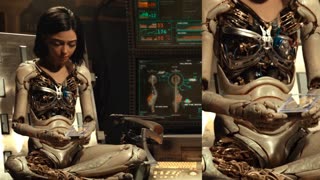 7:07
7:07
Psychological operations
4 days agoHand Of Doom Black Sabbath
261 -
 1:15:07
1:15:07
Ami's House
11 hours agoWhat an ACTUAL Military Expert Thinks of the War in Gaza – Nick Freitas | FULL EP
182 -
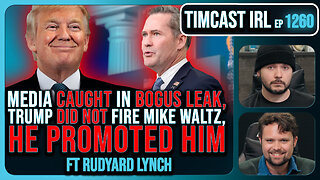 2:54:02
2:54:02
TimcastIRL
3 hours agoLiberal Media CAUGHT In BOGUS LEAK, Trump DID NOT Fire Mike Waltz, HE PROMOTED HIM | Timcast IRL
130K73 -
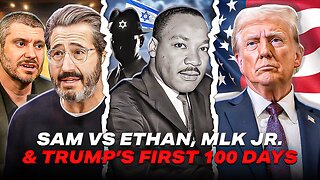 LIVE
LIVE
MyronGainesX
10 hours ago $10.31 earnedSam Seder Embarrasses Ethan Klein, The Truth On MLK's Murder, And Trump's First 100 Days In Review
3,143 watching -
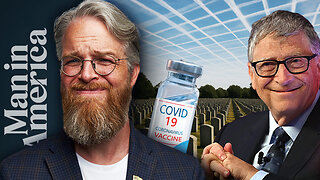 LIVE
LIVE
Man in America
6 hours agoEXPOSED: How Militaries Worldwide Are Engineering DEPOPULATION w/ Todd Callender
1,706 watching -
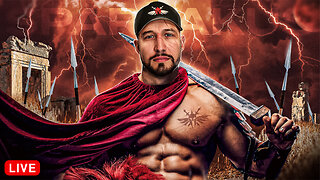 LIVE
LIVE
SpartakusLIVE
5 hours agoNEW Update, NEW Weapons, NEW META?!? || Quads in VERDANSK
196 watching -
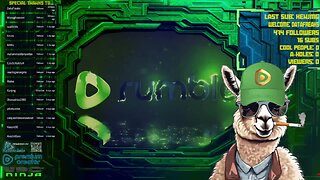 LIVE
LIVE
Jokeuhl Gaming and Chat
2 hours agoEmpyrion - Galactic Survival Long Range Jump Aquired
43 watching -
 4:42:30
4:42:30
Right Side Broadcasting Network
1 day agoLIVE REPLAY: President Trump Gives Commencement Address at University of Alabama - 5/1/25
122K18 -
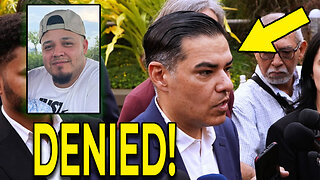 16:58
16:58
T-SPLY
8 hours agoDems’ Bad News: El Salvador Rejects Abrego, Democrats Fume!
51.1K45 -
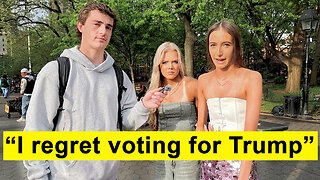 18:56
18:56
Nick Shirley
4 hours ago $1.22 earnedAsking People About Trump’s First 100 Days… How are Americans Feeling?
7.02K16